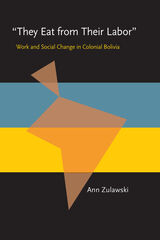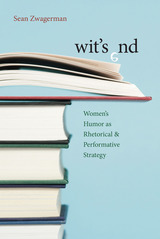8 have author last names that start with Z have author last names that start with Z


Eastern European prefabricated housing blocks are often vilified as the visible manifestations of everything that was wrong with state socialism. For many inside and outside the region, the uniformity of these buildings became symbols of the dullness and drudgery of everyday life. Manufacturing a Socialist Modernity complicates this common perception. Analyzing the cultural, intellectual, and professional debates surrounding the construction of mass housing in early postwar Czechoslovakia, Zarecor shows that these housing blocks served an essential function in the planned economy and reflected an interwar aesthetic, derived from constructivism and functionalism, that carried forward into the 1950s.
With a focus on prefabricated and standardized housing built from 1945 to 1960, Zarecor offers broad and innovative insights into the country’s transition from capitalism to state socialism. She demonstrates that during this shift, architects and engineers consistently strove to meet the needs of Czechs and Slovaks despite challenging economic conditions, a lack of material resources, and manufacturing and technological limitations. In the process, architects were asked to put aside their individual creative aspirations and transform themselves into technicians and industrial producers.
Manufacturing a Socialist Modernity is the first comprehensive history of architectural practice and the emergence of prefabricated housing in the Eastern Bloc. Through discussions of individual architects and projects, as well as building typologies, professional associations, and institutional organization, it opens a rare window into the cultural and economic life of Eastern Europe during the early postwar period.

The colonial state in Quebec aimed to emulate British precedent and develop similar institutions that allowed authorities to prevent cholera by imposing quarantines and controlling the disease through comprehensive change to the urban environment and sanitary improvements. In Madras, however, the provincial government sought to exploit the colony for profit and was reluctant to commit its resources to measures against cholera that would alienate the city’s inhabitants. It was only in 1857, after concern rose in Britain over the health of its troops in India, that a civilizing mission of sanitary improvement was begun. As Zeheter shows, complex political and economic factors came to bear on the reshaping of each colony's environment and the urgency placed on disease control.


Spring training, a time when every team is in first place, is an American tradition dating back to the early years of the twentieth century. William Zinsser vividly brings to life the unique, once-a-year relationship between Bradenton, Florida, and its adopted team, the Pittsburgh Pirates.
In 1988 the Pirates were an unproven yet promising bunch with high hopes of competing for the National League pennant. Given rare access to players, management, scouts and umpires, Zinsser sought to discover how a team prepares for the longest season in professional sports.
As valid today as it was when first published, Spring Training reveals how the fundamentals of baseball are taught and learned. The author has added a new introduction and postscript, which includes a lengthy interview with manager Jim Leyland about the lessons that can be learned from losing.

A political biography of a leading German liberal, this book carefully examines the life of Ludwig Bamberger from his university days in the 1840s until his death in 1899. Not only does it deal exhaustively with his career, it unfolds the major issues disputed in Germany during the latter half of the nineteenth century.: socialism, financial and political unification, parliamentarism, protectionism, and colonialism. Bamberger's career offers a vehicle to explore the political and social evolution of Germany, and his varied life illuminates the strength and weaknesses of German liberalism as it confronted and ultimately failed to overcome its competitors.

A study of the growth of the indigenous labor force in upper Peru (now Bolivia) during colonial times. Ann Zulawski provides case studies in mining and agriculture, and places her data within a larger historical context than analyzes Iberian and Andean concepts of gender, property, and labor. She concludes that although mercantilism made a critical impact in the New World, the colonial economic system in the Andes was not yet capitalist. Attitudes of both indigenous peoples and Spanish colonizers hindered the process of turning work into a commodity. In addition, the mobilization of labor power both reinforced and undermined each society's ideas about the economic and social roles of men and women.

The book examines both the potential and limits of women’s humor as a rhetorical strategy in the writings of James Thurber, Zora Neale Hurston, Dorothy Parker, Edward Albee, Louise Erdrich, and others. For Zwagerman, these texts “talk back” to important arguments in humor studies and speech-act theory. He deconstructs the use of humor in select passages by employing the theories of J. L. Austin, John Searle, Jacques Derrida, Shoshana Felman, J. Hillis Miller, and Eve Kosofsky Sedgwick. Zwagerman offers arguments both for and against these approaches while advancing new thinking on humor as the “end”—both the goal and limit—of performative strategy, and as a means of expressing a full range of serious purposes.
Zwagerman contends that women’s humor is not solely a subversive act, but instead it should be viewed in the total speech situation through context, motives, and intended audience. Not strictly a transgressive influence, women’s humor is seen as both a social corrective and a reinforcement of established ideologies. Humor has become an epistemology, an “attitude” or slant on one’s relation to society.
Zwagerman seeks to broaden the scope of performativity theory beyond the logical pragmatism of deconstruction and looks to the use of humor in literature as a deliberate stylization of experiences found in real-world social structures, and as a tool for change.
READERS
Browse our collection.
PUBLISHERS
See BiblioVault's publisher services.
STUDENT SERVICES
Files for college accessibility offices.
UChicago Accessibility Resources
home | accessibility | search | about | contact us
BiblioVault ® 2001 - 2024
The University of Chicago Press









